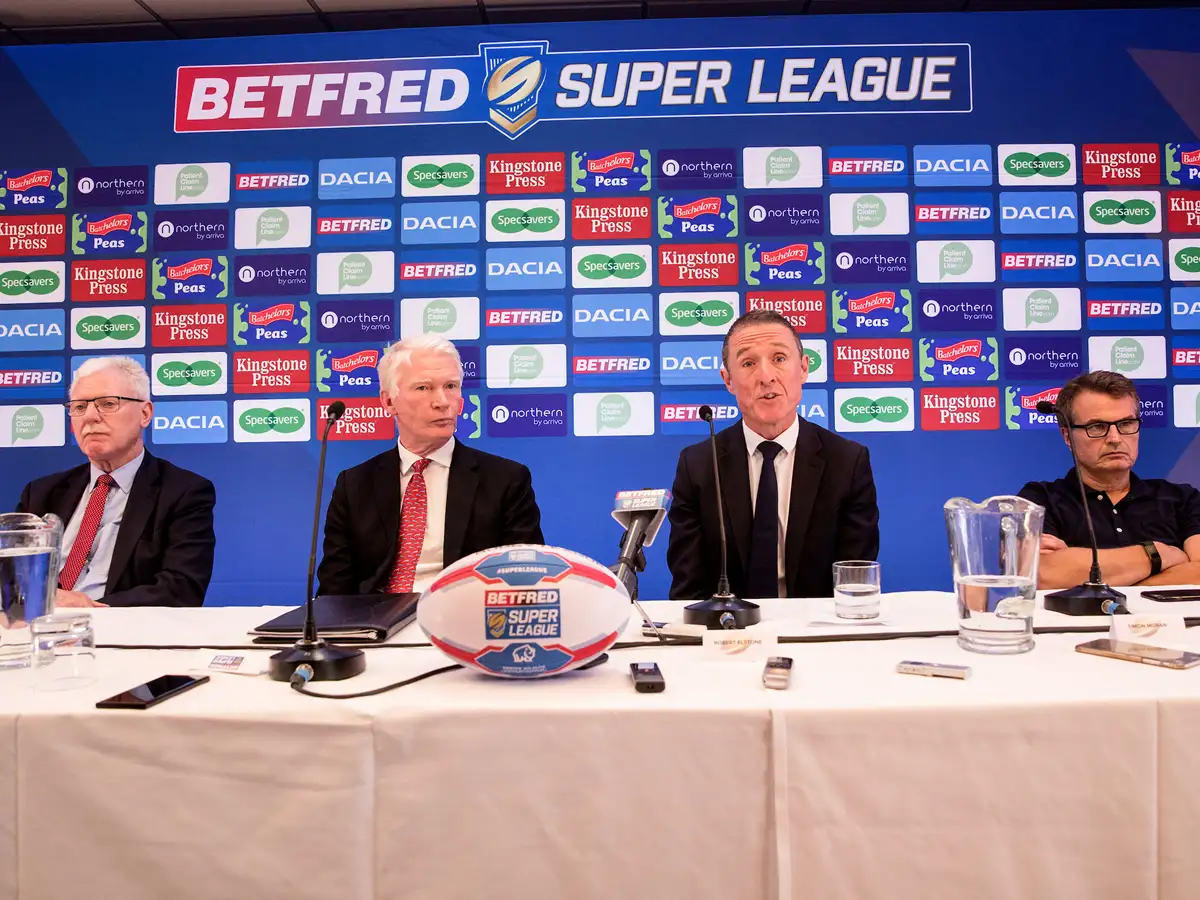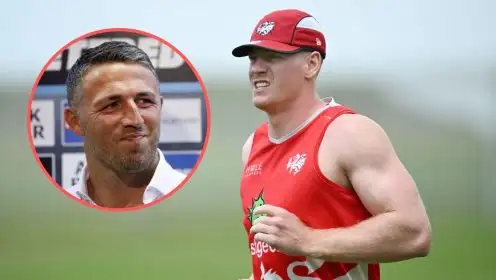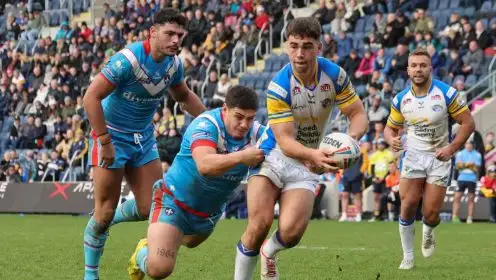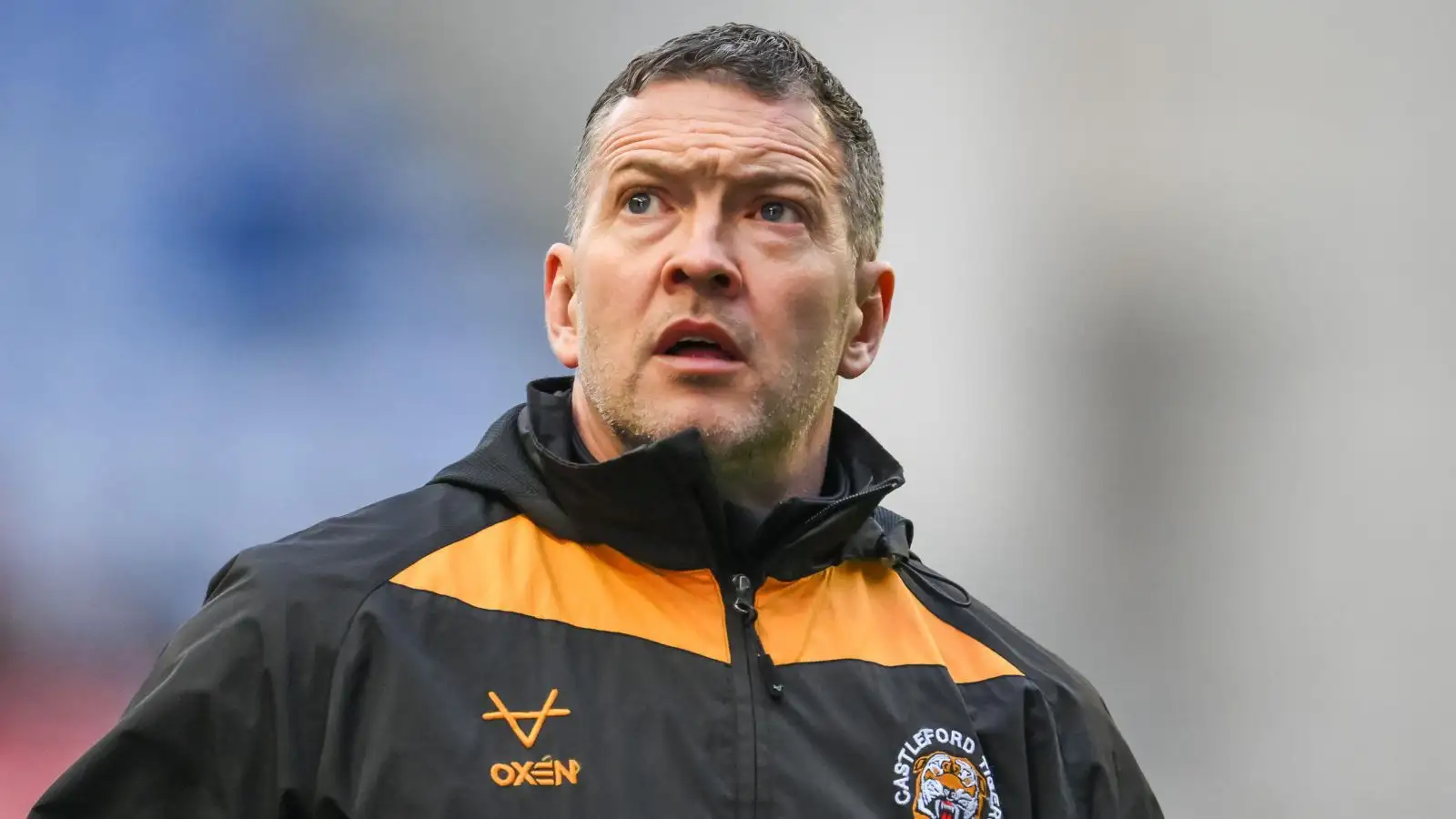Is Super League criticism unfair? Rome wasn’t built in a day

It’s almost a year since the remarkable press conference that saw three Super League club chairmen unveil Robert Elstone as the league’s new chief executive.
What followed was a mess of back-and-forth and while there have been a sprinkling of changes, largely it has been about a re-structuring behind the scenes to lay the foundations for the future.
That didn’t stop Bradford chairman Andrew Chalmers, a fierce critic of Wigan counterpart Ian Lenagan in particular in the past, from firing a shot at Super League in his recent column.
He wrote: “I cannot think of a single positive benefit that has accrued from this power grab. We do now have golden point, which in my view is an unfair settlement of an honourable draw that is not really needed.
“We also have something called shot clocks which nobody is really persuaded by. Is that really the best that a powered up, expensive dedicated executive can come up with?
“Let’s look at the negatives. The embarrassing two referees retreat which occurred when the clubs were told they would actually be paying for it, the burgeoning Super League executive, which incidentally comprise almost exclusively former RFL staff.
“With new palatial Manchester City Centre offices just for Super League, the sport ludicrously now has three HQs, three sets of costs. Are we really that well off?
“The bill for Super League clubs will now surely be in excess of a million pounds a year. I do hope they feel they are getting good value?
“At least we have got the loopy fixtures to look forward to, in fact they’ve already started, when the same clubs play each other so frequently we risk getting bored into submission.
“And we will soon have a pale imitation of the Magic concept, with new unattractive match ups played in front of, (I confidently predict), a lower crowd than before. Good luck to them all. A house divided and all that. Ho hum.”
It’s hard to argue with any of Chalmers’ points, though in fairness to Elstone, Rome wasn’t built in a day.
Clearly it is going to take time to rescue Super League from its current abyss, brought on by more than a decade of off-field squabbling and posturing that has distracted from the real issues of the game, including those affecting the on-field product and marketing reach.
As Chalmers points out, the majority of staff with a Super League remit are the same ones that had similar jobs at the RFL, who have now been left with a skeleton staff though their communication is still far superior it has to be said.
Despite putting on a united front, there are fractures between the relationships, understandable given how it came about in the first place.
You have to trust that Elstone is quietly working behind the scenes, and he intimated as such in pieces with the national press last week that hinted at a possible re-brand of the top flight.
With the trans-atlantic expansion issue looming large on Super League and its funding model, as well as the worries about the next broadcast deal, it will be important that any moves are done with the best of intentions.
While Chalmers and others may rightly be aggrieved by the Super League breakaway, it is done now, and it is now up to them to grow their league as they see fit.
Below them, the Championship has proven this year what a fantastic asset it is to rugby league and the opportunity of a new broadcast deal could yet be that the second tier gets the exposure it deserves.



